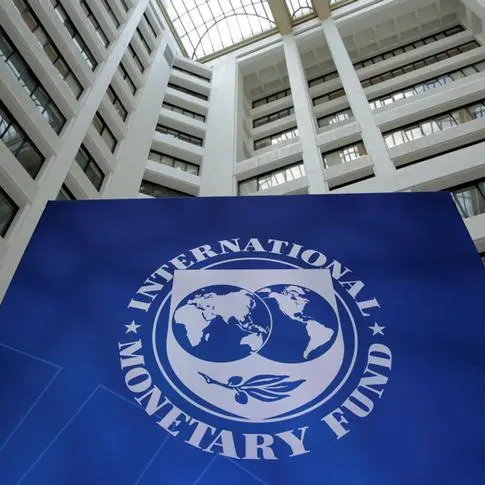PHOTO
After credit rating agency Moody’s Investors Service downgraded Lebanon’s rating to Caa1 from B3 on Monday evening, citing heightened risk of default on its debt obligations, the country faces rising financial pressure to end the political stalemate that has paralysed much-needed reforms.
And while the rating agency’s decision to downgrade Lebanon was seen as ‘hasty’, according to analysts who have spoken to Zawya, its negative impact on the economy cannot be denied.
“Moody’s did not wait for the end of year indicators to come out whether the balance of payments, the balance sheets of commercial banks, or the fiscal results. And December is an important month, both for the balance of payments and balance sheets of commercial banks,” Nassib Ghobril, chief economist at Lebanon’s Byblos Bank, told Zawya in a telephone interview.
“Moody’s changed (the) outlook of Lebanon sovereign rating from stable to negative only last month. The downgrade in itself was hasty even given that a negative outlook signals the possibility of a downgrade but not an imminent one,” he said.
“One reason for the downgrade that Moody’s gave was the delay in the formation of the government and therefore in the implementation of reform. Definitely, the downgrade is the cost of the obstruction of the formation of a government, and therefore in the delays in much-needed structural reforms,” he added.
However, Ghobril argued that the other rationale for the downgrade made by the ratings agency was not convincing, when Moody’s said the measures that the Lebanese authorities might take to reduce debt servicing cost would consist of an implicit default on Lebanon’s debt obligations.
“The government has not specified any measures yet, and that is the hastiness. Efforts to reduce debt serving are usually positive,” he added.
Moreover, the president of the republic, the governor of central bank, the minister of finance and the minister of economy and trade had all declared earlier this month that Lebanon was committed to paying all of its debt obligations, and to protect deposits of commercial banks, Ghobril noted. They also clearly denied any intention to re-structure any part of the public debt, he said.
Richard Abdallah, a country risk analyst at Beirut-based bank Credit Libanais, also said that Moody’s downgrade of Lebanon ignores Qatar’s announcement on Monday that it plans to buy $500 million of Lebanese government bonds, particularly those trading on the secondary market, to support the Lebanese economy.
“This will benefit both parties, whereby Qatar will gain high yields on its purchase which will encourage even more investors to buy Lebanese Government Debt in the market,” Abdalla told Zawya by email.
On Tuesday, Lebanon's dollar-denominated sovereign bonds fell 0.811 cents to trade at 73.568 cents to the dollar, Reuters reported, citing Tradeweb data, following Moody’s downgrade. This follows the gains that the sovereign debt instrument made a day earlier after Qatar announced its planned bond investment.
Currency in reserve
Abdallah also noted that Moody’s were too quick to downgrade Lebanon’s rating, especially given “BDL’s (Banque Du Liban) large stock of FX Reserves has remained resilient and amounts to $33.56 billion, excluding Gold and Foreign Currency Securities, as of November 2018”.
Lebanon faces mounting economic pressure as the crisis-ridden country has been without a government for more than seven months, with its political parties bickering over shares of cabinet seats.
Ghobril noted that the added cost on the economy of the downgrade cannot be denied, as borrowing costs usually increase as a result, “but in effect, it is not going to trigger the cost of the Turkish downgrade for instance,” he said.
“Lebanon faces two challenges: the first is to reduce the borrowing needs of the government through shrinking the budget deficit, through reforms; and the second challenge is to stimulate growth. They need government in place to jump-start the reform process,” Ghobril said.
Lebanon’s Minister of Finance Ali Hassan Khalil tweeted in Arabic on Tuesday that “Moody's report completes what the agency said last month and presses for the need to accelerate government formation to initiate financial reform process, reduce deficit, start projects scheduled at CEDRE Conference, and quickly complete the state budget in order not to lose any more opportunities”.
Earlier this month, the Finance Minister stressed that the government is committed to paying all maturing debt and interest payments and to preserving rights of banks, depositors, and holders of sovereign bonds. He noted, however, that the government is proposing to implement reforms to reduce the state’s deficit for a more secure financial balance.
In April last year, Lebanon won pledges of over $11 billion at the CEDRE Conference in Paris, in the form of loans and grants by international investors and donors.
Yara Dagher, a financial consultant at Arab Finance Corporation, a Beirut-based investment advisory firm, noted that the Lebanese market is experiencing a deterioration in the growth rate of investments.
“Investors are observing a country full of unutilized potentials, and burdened by a significant level of worrying macro-economic indicators,” she told Zawya by email.
“Lebanon's main focus should be to unbolt the public investment package, raise GDP growth prospects and restore investors' confidence,” she added.
Moody’s report in December, on the other hand, noted that Lebanon’s economy would be supported by the “disbursement of significant donor commitments of over $11 billion over the next five years (equivalent to about 3-3.5% of GDP per year) that would boost investment”.
“The importance of forming a Cabinet that is bent on fiscal reform can’t be stressed enough, as both investors’ and depositors’ confidence in Lebanon will likely be restored upon evidence of fiscal consolidation,” Abdallah noted.
Further reading:
- EXPLAINER-How pressing is Lebanon's financial challenge?
- Lebanon dollar-bonds fall on debt restructuring report
- Lebanon central bank head: A new government will reduce risks, rates in economy
- Lebanon government to start issuing local currency debt at market rates: Central Bank
- Lebanon's risk profile "rising sharply": World Bank
(Reporting by Nada Al Rifai; Editing by Michael Fahy)
(nada.rifai@refinitiv.com)
Our Standards: The Thomson Reuters Trust Principles
Disclaimer: This article is provided for informational purposes only. The content does not provide tax, legal or investment advice or opinion regarding the suitability, value or profitability of any particular security, portfolio or investment strategy. Read our full disclaimer policy here.
© ZAWYA 2019












